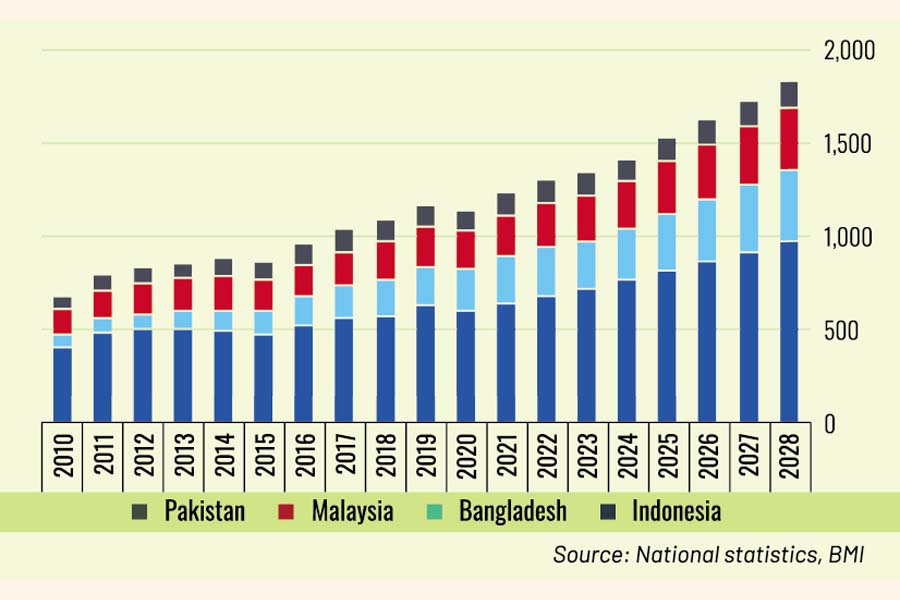
Published :
Updated :

For Muslim consumers in majority-faith countries like Bangladesh, Malaysia, Indonesia and Pakistan, halal e-commerce is emerging as a flourishing intersection of convenience and religious conviction.
Data shows these countries collectively have seen steady and continuous growth in household spending.
From 2010 to 2024, household spending grew at an annual average of 7.4 per cent, reaching $1.4 trillion in 2024, up from $687.9 billion in 2010, according to BMI Estimate, a concern of Fitch Solutions.
"Sustained growth is also expected to continue over the medium term (2024-2028) at an annual average of 5.8 per cent to reach $1.8 trillion by 2028," says the estimate.
This highlights the growing commercial potential within the overall retail landscape of these markets, it noted.
In general, halal e-commerce is defined by online transactions complying with Islamic principles and the entire supply chain maintaining Islamic principles.
The report says, "As these are Muslim-majority countries, businesses specialising in or offering halal-compliant brands are well-positioned to tap into the growing retail spending potential of consumers."
This, combined with the global rise of e-commerce in general, places an additional spotlight on the halal e-commerce sub-segment, particularly in areas like food delivery services, fashion and personal care spending.
Broadly speaking, halal e-commerce ensures that every aspect of the transaction process complies with Islamic principles.
This includes payment systems, policies, logistical supply chains and ultimately, the products or services themselves.
For example, Islamic finance principles prohibit interest (usury). Therefore, financial instruments like credit cards -- which operate on an interest-based model -- would not be permitted. In contrast, debit cards, prepaid cards and e-wallet payment solutions are generally accepted.
Another clear example is the prohibition of pork and alcohol consumption for Muslims. E-commerce sites that fail to implement logistical solutions that separate these products from other halal products throughout the supply chain may be avoided by Muslim consumers due to their religious obligations.
While there are general criteria that most Islamic certification authorities agree on for defining a halal product or halal business process, says the report, acknowledging there is currently no universally agreed-upon halal certification process.
This lack of uniformity can cause difficulties, especially for businesses operating across borders.
Indonesia, the world's most populous Muslim country with around 87 per cent of its people identifying as Muslim, is also the world's largest market for halal products.
This has increased the weight given to the criteria set out by the Indonesian Ulema Council -- the country's top Islamic scholarly body.
Indonesia's Halal Product Assurance scheme and its associated regulations, including the Halal Law, are currently being introduced in phases over a 15-year period.
This will ultimately require a range of products and services, particularly food and beverages imported into the country, to be halal-certified.
E-commerce giants like Foodpanda and Alibaba operate in Bangladesh and are involved in such trade.
jasimharoon@yahoo.com


 For all latest news, follow The Financial Express Google News channel.
For all latest news, follow The Financial Express Google News channel.